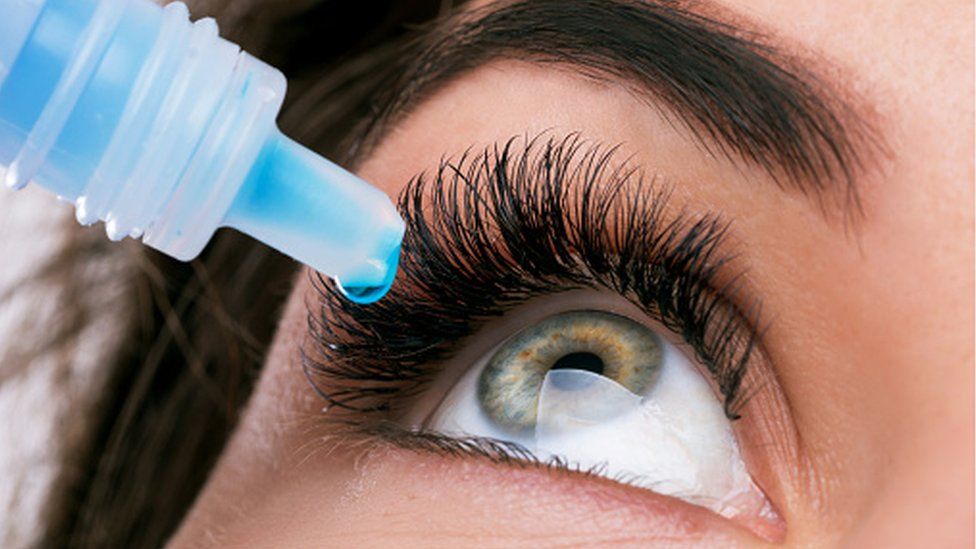
The Indian manufacturer of eye drops linked to three deaths and serious infections in the US violated several safety norms, the country’s top regulator has said.
The Food and Drug Administration (FDA) published a report last week after inspecting Global Pharma’s plant in India’s Chennai city.
The firm recalled the drops in February after a recommendation from the FDA.
The FDA had also stopped imports of the products.
The eye drops – made in India by Global Pharma and imported to the US under two brand names, EzriCare Artificial Tears and Delsam Pharma’s Artificial Tears – were linked to a deadly outbreak of drug-resistant infections in the US.
In March, the US Centers for Disease Control and Prevention (CDC) identified 68 patients across 16 states with a rare strain of Pseudomonas aeruginosa, which can cause serious infections, especially in immunocompromised people. The drug-resistant strain had never been found in the country before the latest outbreak.
In addition to the deaths, eight patients suffered vision loss, and four had their eye surgically removed, the BBC reported in March.
“To the greatest extent possible, we have been contacting customers to advise them against continued use of the product,” EzriCare Artificial Tears said on its website in February .
The company said it marketed the eye drops, but had no role in the “actual manufacturing” of the product.
While the product recall was initially for the eye drops called EzriCare Artificial Tears Lubricant and Delsam Pharma Artificial Tears Lubricant, it was later expanded to include an eye ointment marketed by Delsam Pharma as well.
The FDA conducted an 11-day inspection of the Global Pharma plant in India from 20 February, and said in its report that it observed several violations related to sterilisation and hygiene.
This included a “black, brown coloured greasy deposit” on a bowl; several parts of the sterile manufacturing area such as doors and handles were not cleaned properly.
The FDA report also said that surfaces that came into contact with the drug packaging “were not cleaned, sanitised, decontaminated, or sterilised”.
The BBC has emailed Global Pharma for comment.
On Monday, The New York Times reported that the CDC was concerned the bacteria could gain a foothold in the US healthcare system.
“I think we are going to see the impact of this play out over the course of months to years,” Maroya Walters, lead investigator for the CDC’s antimicrobial resistance team, told the NYT.
The CDC had earlier advised anyone who used the recalled products and was experiencing symptoms to contact a doctor. The symptoms included yellow, green, or clear discharge from the eye, discomfort or pain, redness, blurry vision and increased sensitivity to light.
In recent months, many Indian firms have come under scrutiny for the quality of their drugs, with experts raising concerns about the manufacturing practices used to make these medicines.
In March, India’s drug regulator cancelled the manufacturing licence of Marion Biotech, whose cough syrups were linked to 18 child deaths in Uzbekistan.
The World Health Organization also issued an alert last October linking four Indian-made cough syrups to child deaths in The Gambia. India later said that the medicines complied with specifications when tested at home, but the WHO responded that it stood by “the action taken”.
BBC News India is now on YouTube. Click here to subscribe and watch our documentaries, explainers and features.

Read more India stories from the BBC:

